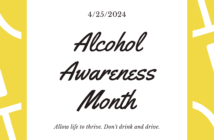By: Alora Peters, Contributing Writer
Is love scientific?
It depends on who you ask.
Nearly a decade ago, anthropologist Helen Fisher, Ph.D. released ground-breaking research on the human brain that would inevitably change the way society thinks about love.
Romantic love, as implied by the 2005 study, is largely a biological and chemical process. When participants were shown photographs of people that they were romantically attracted to, their brains released high levels of the chemical dopamine. Dopamine is associated with the brain’s reward pathway. Certain actions or behaviors will release this chemical to reward the brain with a pleasurable feeling. In fact, drug addiction occurs when a person becomes dependent on a substance to increase dopamine levels and achieve the elated feeling of a high. The results of Fisher’s study pointed towards this chemical effect as the reason the feelings of euphoria and strong desire are associated with romantic relationships.
But is love nothing more than evolutionary impulses and chemical reactions occurring in the brain?
Perhaps this is the wrong question. Society tends to sloppily stereotype love as being exclusively sexual and physical, leaving one to unwittingly forget about the less obvious ways we also love our family, our friends, our country, or even our pets.
“Love is central to our lives and requires a lot of perspective-taking,” said Dr. Kathryn Duncan, a professor of English at Saint Leo University.
Last year, when Duncan lost her mother, she found solace in reading poetry about love and friendship. Of particular note was the famous “Sonnet 43” by poet Elizabeth Barrett Browning, which Duncan read at her mother’s funeral.
“I love thee to the depth and breadth and height my soul can reach… I love thee freely… I love thee purely… and, if God choose, I shall but love thee better after death.”
“Science is a lens through which we can attempt to understand love,” said Duncan. “But I don’t think all of that can be boiled down to science.”
At Saint Leo, which stresses traditional Benedictine values, it is important to remember that Christianity has constantly taught that true, authentic love is “to will the good of another.” In other words, a lover shows his or her love for another by protecting, nurturing, and desiring the happiness of the body and soul of the beloved – and chemistry, biology, and dopamine have nothing to do with it.
This kind of love, which is inherently self-sacrificial, may not be popular – or even very scientific – by our culture’s standards. But it begs a profound and possibly uncomfortable question: when was the last a small act of kindness was performed as a powerful act of love?
It can be as simple as holding the door open for a person, or giving a friendly smile to the shy kid in class who’s been having a rough day, or maybe putting down one’s cell phone for a few minutes to listen to the lecture the professor spent time preparing.
So, this Valentine’s Day, ask not what one might receive, but what one might be able to give to the people in one’s life to show them just how much one cares.






1 Comment
Top site ,.. amazaing post ! Just keep the work on !